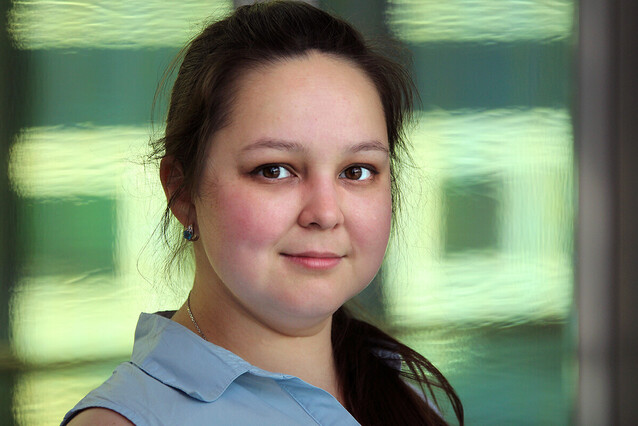Competitive grants for IMP regeneration researchers
New funding has been granted for two projects in the field of regeneration biology, carried out in the lab of Senior Scientist Elly Tanaka.
Hertha Firnberg Grant for Anastasia Polikarpova
Anastasia Polikarpova, a postdoctoral researcher in the lab of Elly Tanaka, has been selected for funding through the FWF's Hertha Firnberg Programme. Her project "Soft connective tissue cells in axolotl bone healing" seeks to identify cells and signals that can promote regeneration in delayed bone healing.
Bone fractures are an increasing medical problem in an ageing society. Though most fractures heal within months, so-called critical size defects (CSD) - characterised by loss of a larger volume of bone tissue - present a serious challenge, with no effective treatment available. To understand which factors are important for bone healing, Anastasia Polikarpova will use knowledge obtained from the Mexican salamander, axolotl. Like mammals, axolotls cannot heal CSD; however, they do have the ability to fully regenerate an amputated limb, including lost bones. Cells of the soft connective tissue make a substantial contribution to bone formation in regenerated limb. The project will investigate how these cells could be activated in the process of large bone fracture healing.
The Hertha Firnberg Programme is a funding scheme offered by the Austrian Science Fund FWF. It supports highly qualified female scientists at the postdoc stage and aims to improve their prospects for an academic career. Hertha Firnberg Grants cover personnel and project-specific costs for up to three years. They are allocated by the FWF Board, based on an international review process.
D-A-CH Grant for Elly Tanaka
A bilateral joint project of Elly Tanaka with Tatiana Sandoval Guzman and Benjamin Friedrich of the TU Dresden will be supported by a D-A-CH Grant. The project "Signal scaling during limb regeneration" is funded by the German DFG (lead agency) and the Austrian Science Fund FWF.
It aims to understand how axolotl limb regeneration can successfully occur at all life stages, including small and big animals.
When axolotls lose a limb, a blastema is formed which contains progenitor cells that express the same developmental factors as those found in the embryonic limb bud. The size of the regenerating axolotl blastema scales with body size. This strongly suggests that the range of action of developmental factors also scales with body size. The joint project will combine quantitative imaging with quantitative profiling of molecular signalling factors to enable mathematical modelling, with the ultimate goal to understand how the limb development signalling network successfully scales patterns in the axolotl limb blastema of different sized animals. The results will improve the understanding of how adult-sized tissues can be re-grown upon injury.
Further Reading
